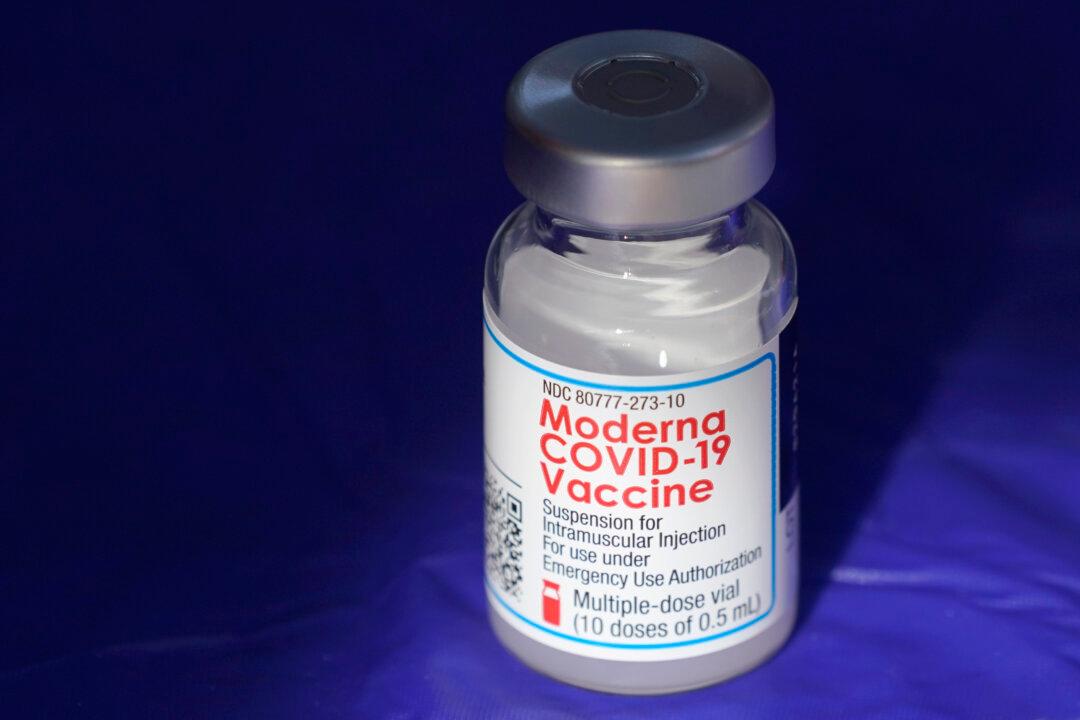Moderna said on Dec. 20 that its existing COVID-19 vaccine booster shot sharply increased Omicron neutralizing antibody levels in laboratory testing, with the drugmaker adding that it continues to work on an Omicron-specific booster.
The company said in a statement that its currently authorized 50 microgram dose booster of its mRNA-1273 vaccine increased Omicron neutralizing antibody levels 37-fold, while a not-yet-approved 100 microgram dose booster raised them 83-fold.





